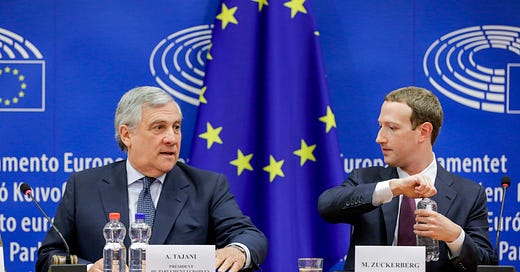Zuckerberg's "New Deal" for EU Clients
Meta's "New Deal" for European Union Users: A Game Changer in Privacy Matters or a Mirage?
The “Choice” for European Users
Facebook and Instagram are offering their European users a catch-22. Users in approximately 30 European nations will soon have two options: either consent to targeted advertisements based on their online behaviour and location or pay roughly $17 a month to go ad-free on these platforms. A third option is, of course, to simply quit these platforms.
Why This Isn't Available in the U.S.
Interestingly, this ad-free version of Facebook and Instagram is not available to users in the United States. The subscription cost, higher than even a standard Netflix account, is perhaps Meta's clever tactic to circumvent tightened EU regulations while also testing how repulsed users are by data-hungry online ads.
Could India See a Similar Subscription Model?
The subscription model presented by Meta for its European users naturally leads us to ponder its applicability in India. However, market experts caution that Indian consumers, who are accustomed to 'free' digital services, are generally reluctant to transition into paying even nominal monthly fees. Moreover, the appreciation of 'digital privacy' in India is mostly limited to the prevention of hacking incidents affecting social media or bank accounts.
Given these market dynamics and consumer attitudes towards paid services and privacy, it seems improbable that Meta will venture into introducing a similar subscription model in India anytime soon.
Behind the Fine Print
For those Europeans who choose the subscription path, Meta will continue to collect user data but desist from using it for targeted advertisements. This begs the question: Is Meta's subscription a genuine answer to privacy concerns or merely a costly way to avoid “creepy” Facebook ads?
A Closer Look at Costs
Starting this November, the subscription will initially cost around $10.60 a month before rising to $17 for those who wish to use both Facebook and Instagram without ads. Although not yet confirmed, European regulators might find this subscription to fulfil Meta’s legal obligations. Currently, the average European Facebook user brings less than $8 a month to Meta via advertisements. Hence, the subscription might be a more profitable avenue for Meta.
Privacy Paradox
Despite the paid option, the fundamental issue of data privacy remains unaddressed. Meta still collects your data, even if you're paying to avoid ads. Users have to choose between relinquishing control over their data or not using these services at all. The illusion of choice remains.
What Could Be Better?
While lower subscription costs could make it more accessible, the core issue lies deeper. The real solution is forcing companies like Meta to collect less data in the first place, whether or not a user decides to go ad-free.
Money-Saving Tips
If you decide to subscribe, it's cheaper to do so via Meta's websites rather than through their smartphone apps, owing to higher prices set to offset app store fees. This applies to other services as well, such as YouTube and Audible.
The Takeaway
The new Meta subscription may be a strategic move for the company, but it fails to solve the deeper problem of data privacy. It could even be perceived as a tactic to put regulators at bay while profiting more from those willing to pay. The real issue, then, remains the indiscriminate collection of personal data, a subject that needs regulatory scrutiny, not just in the EU but globally, including in India.
.
.
.






